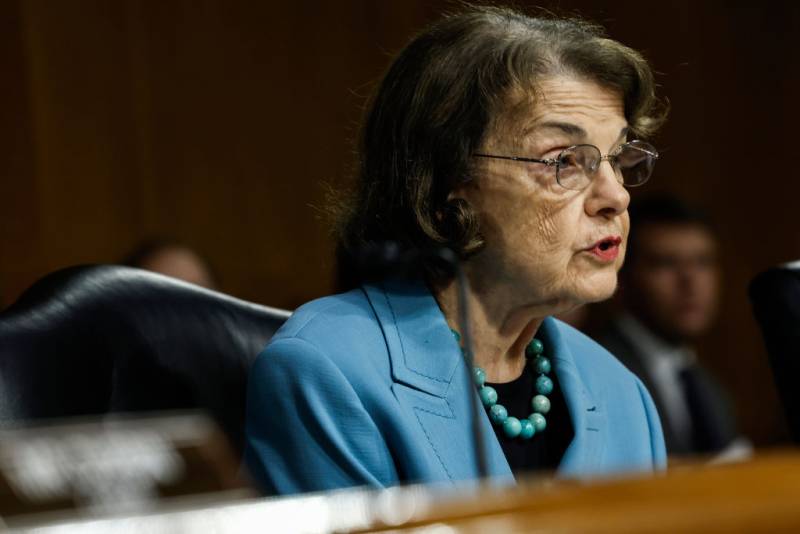“Even with a divided Congress, we can still pass bills that will improve lives,” she said. “Each of us was sent here to solve problems. That’s what I’ve done for the last 30 years, and that’s what I plan to do for the next two years. My thanks to the people of California for allowing me to serve them.”
Speaking to reporters in Washington on Tuesday, Feinstein said, “There’s times for all things under the sun.”
She added, “I think that will be the right time, towards the end of next year.”
The announcement was widely expected. Feinstein, who turns 90 in June, was first elected to the U.S. Senate in 1992 and is currently the oldest serving member of Congress.
In recent years, questions have been raised about her cognitive health and memory, though she has defended her effectiveness in representing a state that is home to nearly 40 million people.
In advance of her announcement, a field of Democratic candidates had already begun assembling for what is likely to be a fierce campaign to replace her in a heavily Democratic state. In January, Reps. Katie Porter and Adam Schiff both threw their hats in the ring, with other high-profile candidates likely to follow.
Feinstein is one of the Senate’s few remaining veterans of the so-called “Year of the Woman,” referring to several women who were elected to the male-dominated chamber during the 1992 election. But even before she moved to Washington, Feinstein had already broken multiple barriers in her home city, and become one of the most prominent women in American politics.
In the 1970s, Feinstein became the first woman to serve as president of the San Francisco Board of Supervisors. She then became the city’s first female mayor, following the November 1978 assassinations of then-Mayor George Moscone and City Supervisor Harvey Milk by a former supervisor, Dan White. Feinstein found Milk’s body.
In Washington, she became the first woman to head the Senate Intelligence Committee and the first woman to serve as the Judiciary Committee’s top Democrat.
“I recognize that women have had to fight for everything they have gotten, every right,” she told The Associated Press in 2005.
Long known for her keen mind and razor-sharp tongue, Feinstein gained a reputation as a pragmatic centrist who left a mark on political battles over issues ranging from reproductive rights to environmental protection.
Feinstein is particularly closely associated with efforts to broaden gun restrictions. Early in her career, the Senate approved her amendment to ban manufacturing and sales of certain types of assault weapons as part of a crime bill that President Bill Clinton signed into law in 1994. The ban expired 10 years later and was never replaced, but it remained a trademark issue in a career that was molded by gun violence.
She was also known for reaching out to Republicans to find middle ground. While that may have helped her notch legislative accomplishments in Washington, it chafed some in a Democratic Party that has moved increasingly to the left in recent years.
That frustration was on display during her last reelection campaign in 2018. The California Democratic Party endorsed a liberal rival for her seat, with some delegates complaining Feinstein had been in Washington too long and hadn’t stood strong enough for immigrants.
She also infuriated liberals in 2020 when she closed out confirmation hearings for Justice Amy Coney Barrett by embracing Senate Judiciary Committee Chair Lindsey Graham, a Republican, and thanking him for a job well done.
Liberal advocacy groups that had fiercely opposed Barrett’s nomination to replace the late liberal icon Justice Ruth Bader Ginsburg called for Feinstein to step down from the Judiciary Committee leadership. A month later, she announced she would remain on the committee but relinquish her position as the top Democrat.

